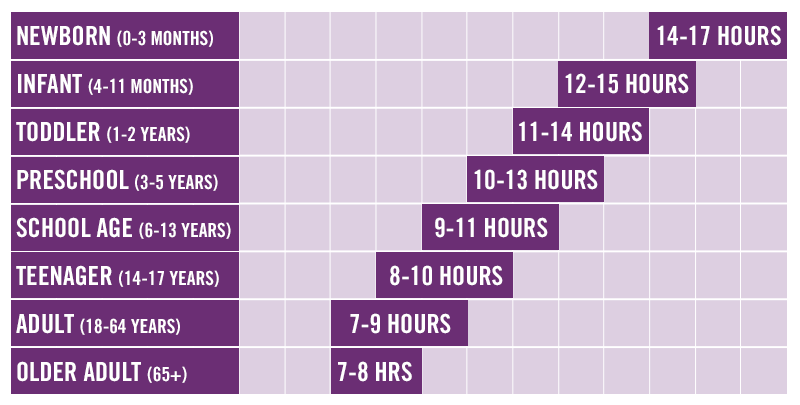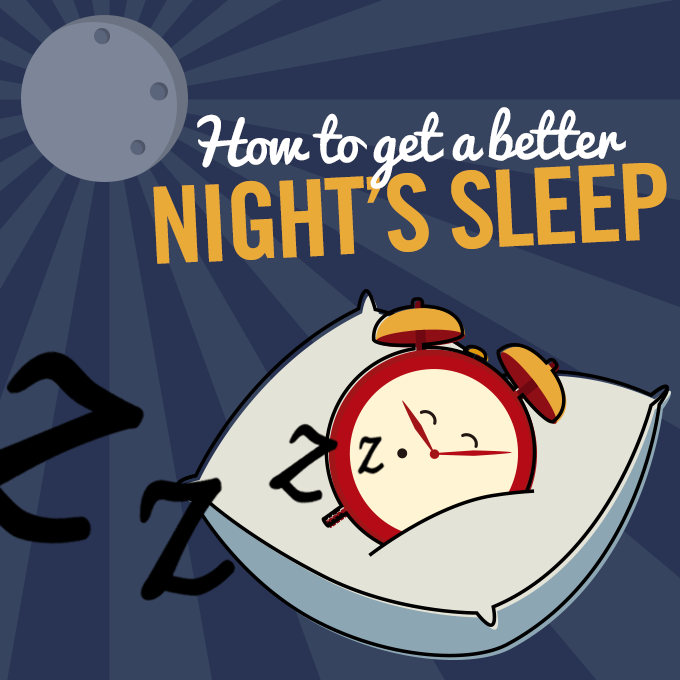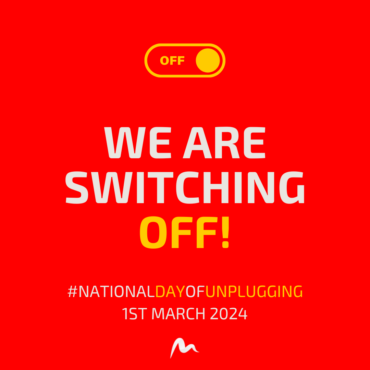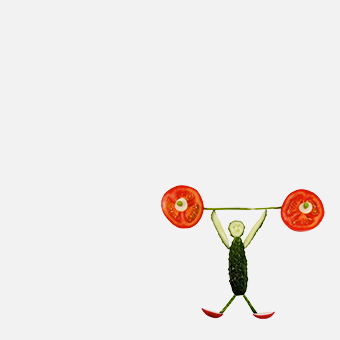We sleep for approximately one-third of our lives. Sometimes we might feel that sleep is something that’s done once you feel like you need it, or when everything else has been done. But in fact, sleeping is just as essential to our well-being as breathing, food and water. When we sleep, our body can reassign the energy that it usually uses when awake towards other tasks, like recovering from illness or “mending” after an injury.
What is insomnia?
Insomnia is defined as a problem with falling asleep, staying asleep, returning to sleep after waking, or simply waking up too early (naturally, of course, not because you’ve got to get to an 8 am meeting). There are two types of insomnia; acute insomnia only happens for a brief period of time and is often circumstantial, whereas chronic insomnia occurs three nights a week for at least three months. Chronic insomnia can be brought on by any number of factors including environment, work, or medication. Of course, stress can play a huge part in this too. A lot of the time, we feel our most stressed or worried late at night, either because we feel we are short on time, or due to being physically and emotionally exhausted, and any burden feels amplified when you’re sleep deprived. There’s a reason why they say never go to sleep angry or upset. It’s a vicious cycle; if you’re stressed it will cause poor sleep, and poor sleep in turn will affect your mood when you wake.
Insomnia can also be considered the exact opposite of daytime sleepiness. Some people experience sleepiness in the morning due to not being able to sleep during the night. Both sleeping problems can go hand in hand.
How much sleep do we need?
Here are the recommended hours of sleep, according to the National Sleep Foundation:

As you may have already experienced for yourself, amounts of ideal sleep can vary slightly from person to person, and an individual’s lifestyle must also be taken into consideration when evaluating how much sleep is needed. The figures above are simply averaged ideals.
Sleeping vs relaxing
When you were a small child and had a problem sleeping, did your mum or dad ever suggest “just lying there with your eyes closed” would be a good option? Is there any scientific backing to this or is it just a popular tactic, favoured by parents and babysitters alike, for keeping a child in bed? Many studies refer to this as “quiet wakefulness”, and research has found that whilst a person is in any way awake, the neurons in their brain will stay constantly active, whereas when asleep, these neurons either activate only some at a time or switch off completely. Therefore resting, although a great way of relaxing your muscles and organs, as well as clearing your mind, will not benefit you cognitively as a deep sleep will. Of course, there is the danger too that resting becomes counter-productive, by switching on a mobile device or the TV. So remember, if you wake in the night and can’t get back to sleep, quiet wakefulness will help, but leave your phone alone.
Keep your sleep quality afloat
There are some more extreme measures for helping people combat sleep deprivation. Floatation tanks are human-sized pods, usually filled with body temperature water. When lying inside, you are therefore disconnected from all sense of gravity, temperature, touch, sight and sound, which make up 90% of your normal neuro-muscular activity. This means you can fully relax into sleep, avoiding all distractions, and one hour in a flotation tank is said to equate to eight hours of regular sleep in terms of the mental and physical benefits.
Sleep trackers
Just like a pedometer would keep track of your steps, there are many different kinds of sleep trackers out on the market. Depending on how much you want to spend, these trackers can either just monitor your sleep, or help improve it. The easiest option is to download one of several apps available on the market for smartphones. If you have a fitness wristband, for example, a FitBit or a Jawbone, there may already be a sleep mode option on the related app, but other apps require you to place your phone under your pillow, so as to track your movement through the night.
However, if you suffer terribly from sleep deprivation and have £250 that you’re willing to part with, you might consider purchasing the Withings Aura. There are three parts to it: the phone app, a bedside lamp which monitors your environment and projects soothing sounds and light patterns, and the mattress monitor, which collects data about your heart rate, motion and respiration. If only it could make you a morning cuppa too.
How to get a better night’s sleep
Here are our top ten tips for making sure you get the most from your forty winks:
1. Work out to crash out!
Sleep is one more item on the ongoing list of things improved by leading an active lifestyle. Studies in this area have shown that although exercising right before bedtime could lead to a poor night’s sleep, being active in the late afternoon could aid sleep and even significantly improve chronic insomnia. One single session of moderate-intensity aerobic exercise, such as walking, was proven to reduce the time it took to fall asleep, and the length of time that participants in the experiment stayed asleep too.
2. Stick to a schedule
If you’ve ever suffered from simply not feeling tired at the right time, you may need to think about adjusting your body clock. One important way of doing this is to stick to a schedule seven days a week – and yes, that includes the weekends too. Although this might be difficult on the odd social occasion, we’re talking about those nights when you stay in on a Friday or Saturday, and stay up an extra hour because you know you can sleep for an extra hour in the morning. This will wreck your sleep schedule and leave you with what is often referred to as a Monday sleep hangover.
3. Make a bedtime ritual
It’s very important to wind down your body when preparing to sleep. So in the hour leading up to going to sleep, brush your teeth, get into your PJs and try a relaxing activity, for example, reading. Music could also be a good option but think more Enya than Iron Maiden.
4. Set the scene
The experts all say it; your bedroom should only be used for two activities (we’re sure you can guess the other one…). Everything else can be taken outside. The room itself, therefore, should be a calm and peaceful haven, with no television, computers or laptops. Temperature also plays an important part, and according to studies, a cool room is much better for aiding sleep than a warm one. Well, that is at least for your head. A cool head is a happy, sleepyhead, but the body likes to be warm (hence the need for a sheet or duvet). To create the ideal sleeping place, try and get the temperature to between 60 and 67 degrees. Even then, in pyjamas and under the sheets, your body temperature could reach around a snuggly 90.
5. Hit the lights
Lighting in bedrooms is incredibly influential to your sleeping habits. Think of a world pre-Thomas Edison, and pre artificial lighting. We may be 137 years in the future, but our bodies and body clocks are the same; bright light means awake, dim light means sleepy, and darkness means asleep. Block out the light entering your room by using blackout lining for your curtains, or perhaps by wearing an eye mask. Applications have been produced for electronic devices that change the temperature of the light produced onscreen. Blue light is beneficial during the daylight hours for boosting levels of attention and your mood, but at night, this will interfere with sleep. Try not to look at any of these kinds of blue lights for a few hours before you go to bed, or if you have to, maybe consider one of these apps.
6. Get some peace and quiet
There’s nothing more annoying than a noise disturbing your slumber. Whether it’s a ticking watch, building noise next door or passing traffic, even the smallest sound is enough to put your sleep out of joint. Try to find a solution wherever possible. For example, if you need air but want to avoid opening an outside window, you might want to swap to using a fan blower instead (one that doesn’t make too much of a rattle, of course). Disruptive noises could also be coming from an internal source as well, say, your snoring partner. In addition to quieting your partener’s sleep, you may want to create some noise to drown the other sounds out. You can buy white noise machines (or “pink noise”, if you’re being really technical), which produce sounds like waterfalls and the wind whistling through rainforests. Paradise, right in your very room.
7. Be mates with your mattress
Different types of mattresses suit different types of sleepers. Some prefer a harder mattress, whereas others favour softer versions like Tempur. Once you’ve found the mattress of your dreams (excuse the pun), make sure it stays at its best. Most sleep specialists suggest buying a new mattress every seven years. Your pillows might need to be changed more regularly, and again, will suit different people, especially when it comes to your preferred sleeping position. The important thing to make sure is that your neck is properly supported.
8. Stop alarm clock-watching
Ever woken up in the middle of the night, unable to sleep, and just laid and stared at the minutes ticking away of the clock? This is an easy way of stimulating the brain and getting you worked up and anxious ahead of the morning. Try putting your alarm clock in a drawer or somewhere out of sight, so that it doesn’t distract and disturb you. Just make sure you can hear it for the wake-up call…
9. Say cheese
There is no solid evidence to prove that eating cheese before bedtime gives you nightmares, as many people believe. In fact, the tryptophan found in all dairy products along with calcium helps the brain to manufacture melatonin, a sleep trigger. So whether it’s a little chunk of cheddar or a glass of milk, both should get you soothed for sleepy time. In terms of eating at night, try to have your evening meal two or three hours before going to sleep to avoid indigestion.
10. Cut the caffeine and ditch the drink
Caffeine and nicotine will both interfere with winding your mind down into sleep mode. If you are looking for a hot beverage to enjoy before bed, choose a decaffeinated version, or better still, look for tea blends that include peppermint, chamomile, valerian and lavender which all have varying properties to promote sleep. Alcohol is also to be avoided, as although it might sometimes make you feel sleepy when drinking, it has the ability to disturb your mood later on.
With all these steps in place, you’re sure to find your sleep is improved. Sleep tight, and sweet dreams!


















